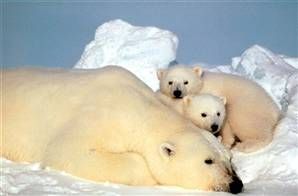
2006, like the last several years before it, was one of the hottest on record. It was the year the first inhabitated island disappeared beneath rising seas. It was the year when people began to realise we may lose the polar bears in the near future.
2006, then, was a bad year for the climate.
But it was also the year that An Inconvenient Truth became one of the most-watched documentary films of all time. 2006 was the year that California - synonymous with car-centred living - passed landmark climate change legislation. It was the year that UK politicians strove to outdo one another with their concern about climate change. It was the year that carbon offsets made the news.In 2006, "carbon neutral" became the Oxford American Dictionary's Word of the Year.
2006, then, was a good year for the climate. Fighting global warming is no longer a fringe issue. More and more of us are coming together to , and to press government and to take action.
At Carbon Clear, we're looking forward to 2007 as the year when we all start to turn the tide on climate change. We hope you'll join in.

